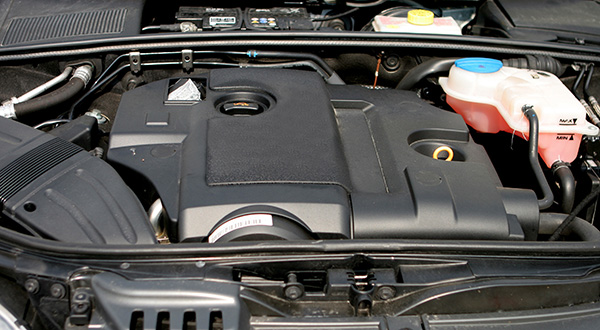
Your car’s engine is designed to operate within a certain noise level, but if you suddenly notice it getting louder, something may be wrong. A change in engine noise could indicate anything from a minor issue like a loose component to a serious problem that could lead to costly repairs. While some causes are harmless, others could affect performance, fuel efficiency, or even put your safety at risk.
If your engine is roaring, rattling, or making unexpected noises, it’s best to identify the cause and address it before it leads to a breakdown.
Exhaust System Problems
A faulty exhaust system is one of the most common reasons an engine sounds louder than usual. Your exhaust system is responsible for directing harmful gases away from the engine while also helping to reduce engine noise. If a leak or break occurs, the sound-dampening effect is lost, causing a significant increase in engine noise.
Exhaust leaks can develop in multiple areas, but a damaged muffler, cracked exhaust manifold, or loose exhaust pipe are among the most frequent culprits. If you notice a loud, deep rumbling noise—especially during acceleration—your exhaust system may need professional attention. Another telltale sign of an exhaust problem is a strong smell of fumes inside the cabin, which could indicate a dangerous carbon monoxide leak.
Low or Dirty Engine Oil
Your engine relies on clean, properly filled oil to lubricate its moving parts. If the oil level is low or the oil itself has become dirty and sludgy, it won’t provide adequate protection. This can cause excessive friction between metal components, leading to increased engine noise.
Many times, an engine that sounds louder than usual—especially if you hear a ticking or knocking sound—could be suffering from lack of lubrication. If you suspect this is the issue, check your oil levels using the dipstick. If the oil appears dark and thick, or if your oil change is overdue, getting fresh oil in the engine may reduce noise and prevent long-term damage.
Loose or Worn Engine Components
As vehicles age, engine parts naturally wear down or become loose, which can cause additional noise. A common source of increased engine sound is a loose belt. Timing belts and accessory belts control various engine functions, and if they become worn or improperly tensioned, they can create squealing or whining noises.
A more concerning cause of loud engine noise is worn bearings or valve train components. If your engine makes a persistent knocking sound, it could indicate that internal parts like the lifters or main bearings are starting to fail. These types of noises require immediate attention, as they can lead to severe engine damage if ignored.
Tire and Road Noise Confusion
Sometimes, what sounds like a louder engine is actually increased road noise from the tires. If your tires are unevenly worn, overinflated, or have aggressive tread patterns, they can produce excessive noise that may seem like it’s coming from under the hood. A simple way to rule this out is to test whether the noise changes as you adjust your speed. If it remains consistent regardless of acceleration, the issue could be tire-related rather than an engine problem.
How to Prevent Engine Noise Issues
Regular maintenance is the best way to prevent unexpected increases in engine noise. Keeping up with oil changes, exhaust inspections, and engine belt replacements can help you avoid problems before they worsen. If you hear any unusual sounds coming from your engine, it’s always best to get it checked sooner rather than later.
Keep your car running for years to come with expert service from Neighborhood Tire Pros! Whether you need routine maintenance or major repairs, our experienced technicians are here to help. Visit us at one of our convenient locations:
- Suwanee, GA
- Decatur, GA (Memorial Drive)
- Decatur, GA (Clairemont Avenue)
- Marietta, GA
Call your nearest shop or schedule your appointment online today!